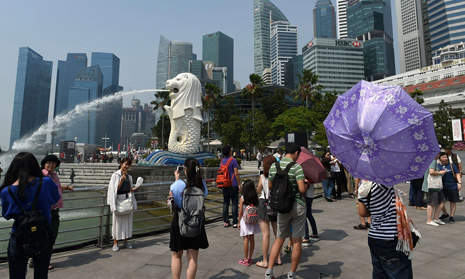The three-month restriction is apparently aimed at preventing long-term residence by foreigners, such as those looking to work in the island-nation or to accompany a child studying here.
“The policy on the repatriation and permanent blacklisting of HIV-positive foreigners was recommended in the late 1980s when the disease was new, fatal and no effective treatment was available,” said a ministry spokesman.
While a short-term visit “poses very low additional risk of HIV transmission to the local population,” the ban on a long-term one remains as “the public health risk posed by long-stayers is not insignificant,” the spokesman said.
Countries such as Australia and New Zealand have similar restrictions on long-term visitors with HIV.
Short-term visitors to Singapore have to obtain a Social Visit Pass that is valid for two to four weeks, and may subsequently be renewed for up to three months. Pass holders are not allowed to work in the city-state.
HIV, or the human immunodeficiency virus, attacks the immune system, making it harder for the body to fight infections. Acquired Immune Deficiency Syndrome (Aids) is the end stage of a HIV infection.
While there is no cure, treatments such as anti-retroviral therapy have helped immune systems, delaying the spread of the virus.
Roy Chan, president of local voluntary group Action for Aids, welcomed the move as a step toward a greater understanding and acceptance of HIV-infected persons.
“While things have improved slightly, we cannot forget that many are still being asked to leave their jobs and are ostracised by friends and family because of HIV infection. Many still suffer alone, and have trouble securing jobs and health insurance,” said Chan.
“We need a supportive environment that does not discriminate against a person because he or she is HIV infected. The repeal of the short-term entry ban is one such example of what we need to do,” he said.
More about:
















































